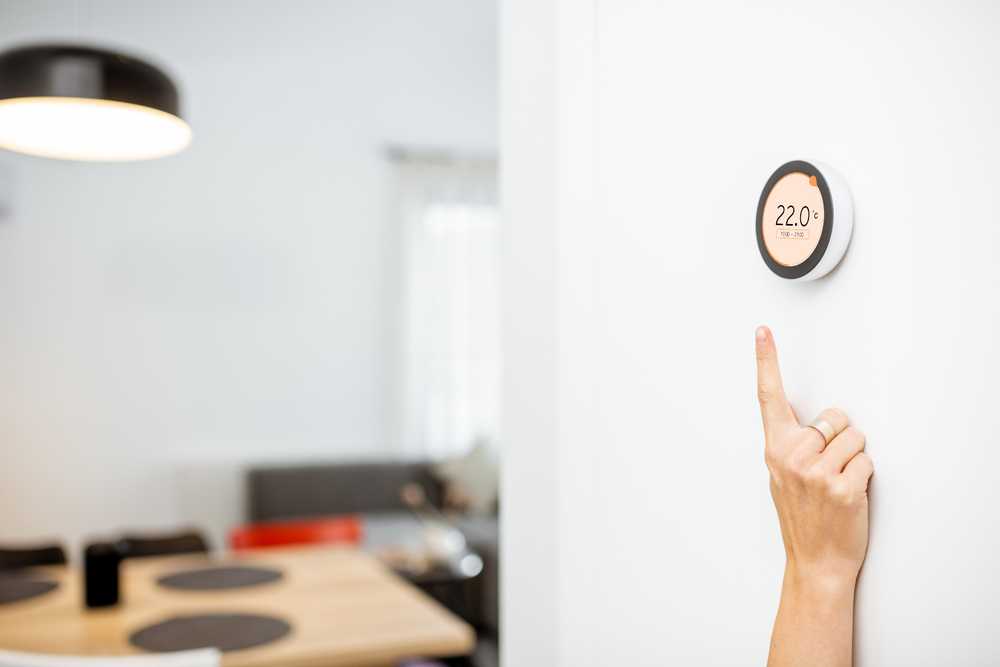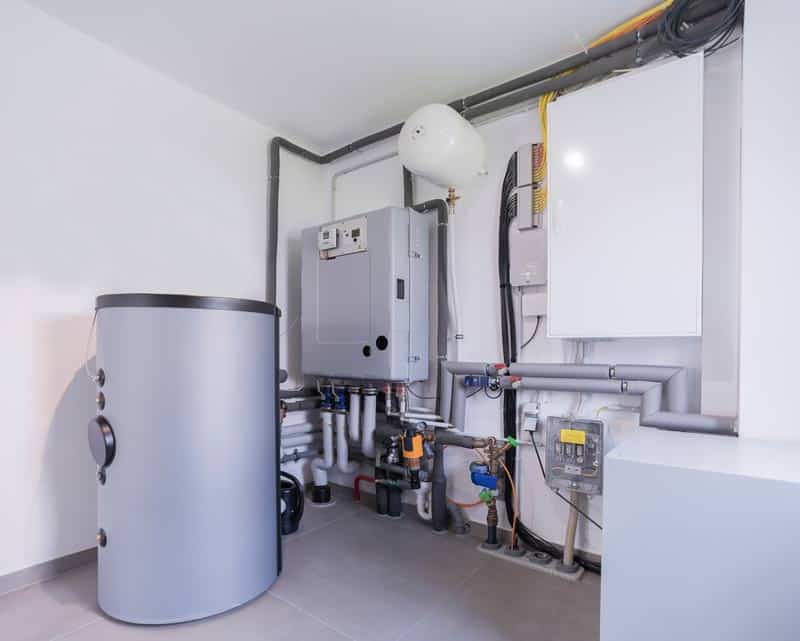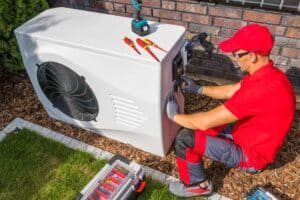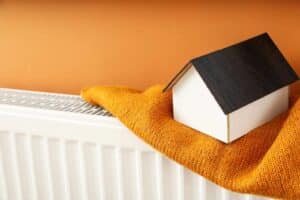
Energy-Efficient Heating Systems: A Complete Guide to Lowering Energy Costs and Staying Comfortable
Energy-efficient heating systems are becoming increasingly important as homeowners look for ways to lower energy bills, improve indoor comfort, and reduce environmental impact. With utility rates continuing to rise and many families spending more time at home, choosing a heating system that uses energy wisely can make a noticeable difference in both monthly expenses and overall comfort. Modern HVAC technologies offer a variety of highly efficient options—including heat pumps, high-efficiency gas furnaces, radiant heating systems, and hybrid heating configurations—that are designed to deliver reliable warmth while consuming significantly less energy than older systems.
The main benefit of energy-efficient heating systems is that they are engineered to convert more of the energy they use into actual heat, minimizing waste. This translates to reduced heating costs, fewer temperature fluctuations, quieter operation, and improved air quality in many cases. Many of today’s systems also offer advanced features such as zoning controls, variable-speed fans, and smart thermostat compatibility, allowing homeowners to tailor heating output based on daily routines and room usage patterns.
However, achieving optimal efficiency is about more than just selecting new equipment. Factors such as climate, home insulation, ductwork condition, and system sizing all play crucial roles in how well a heating system performs. A solution that works well in one home may not be the most efficient choice for another. Understanding how different systems function—and how they match your home’s needs—helps ensure you invest wisely and enjoy lasting comfort.
What Makes a Heating System “Energy-Efficient”?
Energy efficiency describes how effectively a heating system converts energy (electricity, gas, or fuel) into usable heat. The higher the efficiency, the less energy is wasted during heating.
Key Efficiency Metrics to Know
| Term | Meaning | Higher Value Means | Typical Range |
| AFUE (Annual Fuel Utilization Efficiency) | Percentage of fuel converted to heat | Less heat loss, lower cost | 80%–98% |
| HSPF (Heating Seasonal Performance Factor) | Efficiency rating for heat pumps | Greater heating output per watt | 7.7–10+ |
| SEER2 (Seasonal Energy Efficiency Ratio) | Cooling efficiency measure | Lower electricity use during cooling | 14–22+ |
Systems with higher AFUE, HSPF, and SEER2 ratings generally offer lower monthly utility costs and more efficient home heating performance.
Top Energy-Efficient Heating System Options
1. Heat Pumps
Heat pumps are among the most energy-efficient HVAC solutions available. Instead of burning fuel, they transfer heat from outdoor air (or underground) into your home.
Types of Heat Pumps
- Air-Source Heat Pumps: Standard residential choice; performs well in most climates.
- Ductless Mini-Split Heat Pumps: Ideal for zoned heating, home additions, or older homes without ducts.
- Geothermal (Ground-Source) Heat Pumps: Extremely efficient; uses stable underground temperatures.
Advantages
- Low operating cost
- Delivers both heating and cooling
- Excellent long-term energy savings
Considerations
- May require supplemental heat in extreme cold climates
Further reference:
U.S. Department of Energy Heat Pump Guide: https://www.energy.gov/energysaver/heat-pump-systems
2. High-Efficiency Gas Furnaces
Homes with natural gas service often benefit from upgrading to a 95%+ AFUE furnace. These systems use advanced heat exchangers and sealed combustion technology to minimize wasted energy.
Advantages
- Strong, consistent heat output
- Reliable in very cold climates
- Long lifespan with maintenance
Considerations
- Requires annual safety and efficiency evaluation
3. Radiant Heating Systems
Radiant heating warms surfaces—like floors—rather than blowing heated air. This method provides even, consistent comfort without drafts.
Types
- Hydronic radiant floor heating (most efficient)
- Electric radiant heating (often used in single rooms)
Advantages
- Quiet operation
- Comfortable, consistent warmth
- Allows lower thermostat settings without comfort loss
Considerations
- Higher upfront cost
- Best performance in well-insulated homes
4. Hybrid Heating Systems
A hybrid system pairs a heat pump with a furnace, automatically switching based on outdoor temperature and utility pricing. This allows your home to always run on the most efficient energy source.
Best For
- Homes in climates with seasonal temperature shifts
- Homeowners seeking a balance of comfort and cost control
How to Choose the Right Energy-Efficient Heating System
Your ideal system depends on several factors including your climate, current HVAC setup, and energy pricing in your region.
Key Considerations
- Climate Conditions
Heat pumps excel in moderate climates; furnaces are ideal for colder regions. - Existing Ductwork
Homes without ductwork often benefit from mini-split systems. - Insulation Quality
Proper insulation boosts any heating system’s performance. - Energy Source Pricing
Natural gas vs. electric rates impact operating costs. - Long-Term Value vs. Upfront Cost
Higher-efficiency systems typically cost more now but cost less to run.
Energy-Efficient Heating System Comparison
| System Type | Ideal Climate | Efficiency Rating | Typical Upfront Cost |
| Air-Source Heat Pump | Mild to Cold (with backup) | HSPF 8–10 | Moderate |
| Ductless Mini-Split Heat Pump | Any | SEER2 20+ / HSPF 9+ | Moderate-High |
| High-Efficiency Gas Furnace | Cold climates | AFUE 95–98% | Moderate |
| Geothermal Heat Pump | Any | Very high efficiency | High |
| Radiant Floor Heating | Most climates with insulation | Very efficient heat distribution | Medium-High |
Maintenance and Installation Tips for Maximizing Efficiency
- Ensure a Manual J load calculation during system planning
- Install a smart thermostat for better temperature scheduling
- Replace filters every 1–3 months
- Schedule annual professional HVAC service
- Seal and insulate attics, crawlspaces, and ductwork
Proper maintenance improves energy efficiency and extends system lifespan.
Common Questions About Energy-Efficient Heating
How much can switching to an energy-efficient heating system actually lower my energy bills?
Upgrading to an energy-efficient heating system can significantly reduce monthly energy costs, but the exact savings depend on factors such as your home’s insulation, local climate, heating demands, and the type of system installed. Most homeowners see a reduction of 10% to 50% in heating expenses after switching to heat pumps or high-efficiency furnaces. Heat pumps often produce the highest savings because they transfer heat rather than generate it. Pairing your new system with proper air sealing, duct insulation, and a programmable thermostat further enhances efficiency.
Are heat pumps reliable in cold climates, or will I still need a furnace?
Modern heat pumps are designed to function efficiently even in freezing temperatures. Cold-climate air-source heat pumps use variable-speed compressors and advanced refrigerants that allow them to extract heat from outdoor air in temperatures well below freezing. However, in regions with prolonged extreme cold, some homeowners choose to pair heat pumps with a high-efficiency gas furnace in a hybrid heating arrangement. This ensures comfort during severe weather while still maximizing efficiency most of the year. With proper sizing and installation, heat pumps work reliably in nearly all climates.
What makes radiant floor heating more efficient than forced-air heating?
Radiant floor heating warms surfaces rather than air, allowing the space to feel comfortably warm at lower thermostat settings. Unlike forced-air systems that can create temperature swings or drafts, radiant heating distributes heat evenly across the room. It also avoids the energy loss associated with ductwork leaks. Hydronic radiant systems are typically the most efficient because they use heated water circulated through tubing under the floor. While installation costs are higher, radiant systems offer long-lasting comfort and can reduce overall heating energy usage when paired with efficient boilers or heat pumps.
How do I know which heating system is the right fit for my home?
Selecting the right system depends on several factors, including climate, home age, insulation levels, existing ductwork, and your local utility rates. Heat pumps perform well in a wide range of regions, but high-efficiency furnaces may be more effective in areas with consistently low winter temperatures. Homes without ductwork can benefit from ductless mini-split heat pumps, while radiant heating works best in well-insulated spaces or during renovations. A professional HVAC technician should perform a Manual J load calculation to ensure the system is properly sized for your home’s heating needs.
How long do energy-efficient heating systems typically last, and what maintenance do they require?
Most high-efficiency heating systems have a lifespan between 15 and 20 years, though some systems, like geothermal heat pumps, can last even longer with proper care. Routine maintenance is crucial for performance and efficiency. This includes changing or cleaning filters regularly, scheduling annual inspections, checking refrigerant levels for heat pumps, and ensuring ductwork remains sealed and insulated. Radiant systems require minimal ongoing maintenance, but boiler components should still be serviced periodically. Staying proactive with maintenance helps prevent breakdowns, extends equipment lifespan, and maintains low operating costs.
Essential Takeaways for Smarter Home Heating
- Energy-efficient heating systems offer lower operating costs, better comfort, and reduced environmental impact.
- Heat pumps, high-efficiency gas furnaces, radiant heating, and hybrid systems all provide viable efficiency solutions depending on climate and home design.
- Proper installation, insulation, system sizing, and regular maintenance are just as important as choosing the right system.
Contact Ocean Air Plumbing & Cooling for Heating System Guidance
For expert recommendations, installation, maintenance, or energy-efficient upgrades, contact Ocean Air Plumbing & Cooling. Their licensed team provides custom HVAC solutions designed for long-term performance, comfort, and efficiency.
Schedule Your Service or Estimate:
https://oceanaircool.com/contact-us/







